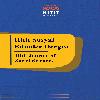Kelamî Tartışmaları Kur'ân Ayetleriyle Temellendirmenin İçerdiği Sorunlar
Dinî bilginin en temel kaynağı şüphesiz ki nassdır. Her dinin mensupları kendilerine tavsiye edilen hayat tarzını ve kurmaları gereken kültürel dünyayı bu kutsal metinler çerçevesinde oluşturur. Dinî bir anlayış, bir davranış, bir yaşayış tarzı geliştirirken veya bir zihniyet inşa edip, bununla bir dünya kurarken toplumlar, mensubu bulundukları dine ait kutsal metinlerden (nasslardan) uzak kalamazlar. Zaten temelinde dini metinlerin olmadığı bir din anlayışı ya da onlara göre kurulmamış bir dinî hayat, kabul edilmelidir ki, sağlam bir din anlayışı ve doğru bir dinî hayat olamaz. Yalnız bu kültürel dünyanın kuruluşunda, kitaplı dinlerde münzel olan nassın yanı sıra etkin olan, bir de onun anlaşılması ve yorumlanması gerçeği vardır. Münzel olan nass ilâhîdir, yorumu ise, insana ait beşerî bir etkinliktir. İşte dinî anlayışlardaki farklılıklar ve sorunlar genellikle burada ortaya çıkmaktadır. Çünkü herkesin bu metinleri kasta uygun olarak anlaması ya da aynı anlamda buluşması tabii olarak imkânsızdır. Bu da bir takım anlama probleminin olduğunu ortaya koymaktadır. Fakat hemen şunu belirtelim ki, burada anlamadan kastettiğimiz şey, sadece bir metnin lafzını anlama düzeyindeki basit bir anlama olmayıp, hitabın özelliklerine vakıf olma, sözün söyleniş amacıyla bağıntısını kurma, hitap edenin maksadını kavrama gibi belli bir alanda ihtisas gerektiren yollarla onun delaletlerini ve taşıdığı hükümleri keşfetme anlamındaki teknik sorunları içeren bir anlamadır. Dolayısıyla bu, ilim ehlini ilgilendiren üst bir uğraşı alanını oluşturmaktadır.
Anahtar Kelimeler:
Kur'an, Âyet, Kelamî Tartışmalar, Nass, Kelam
DISCUSSIONS OF THE QUR'AN PROBLEMS OF THE BASIS
The most fundamental source of religious knowledge is undoubtedly nass. Members of each religion form the lifestyle that is recommended to them and the cultural world they need to establish within the framework of these sacred texts. In developing a religious understanding, a behavior, a life style, or building a mindset and building a world with it, societies cannot stay away from the sacred texts of the religion they belong to. There is no religious understanding on the basis of religious texts, or a religious life that has not been established according to them. Only in the foundation of this cultural world, there is the fact that it is active, as well as nassin, which is unique in book religions, and its interpretation and interpretation. The special nass is divine, and the interpretation is a humanistic activity. Here, the differences and problems in religious understandings usually arise here. Because it is of course impossible for everyone to understand these texts appropriately or meet in the same sense. This shows that there is a team understanding problem. But let us point out that what we mean without understanding here is not simply a simple understanding of the meaning of a letter, but the ability to understand the features of the book, to establish the relation of the word for the purpose of writing, to understand the purpose of the addressee, and to discover the meanings and the implications of it. meaningful technical problems. Therefore, this constitutes a high area of occupation that concerns the people of science.
Keywords:
Kelam, Kuran, verse, kelami discussions,
___
- MACİT, Nadim: "Kelamcıların Kur'an'ı Anlama Yöntemi ve Sorunları", İSLÂMİYÂT, C. II, S. 1, Ocak-Mart 1999.
- ISSN: 2757-6957
- Yayın Aralığı: Yılda 2 Sayı
- Başlangıç: 2020
- Yayıncı: Hitit Üniversitesi
Sayıdaki Diğer Makaleler
İmam Kasım b. İbrahim ve Mu’tezilîlik
İslam Felsefesinin Teşekkül Dönemi “Varlık” Anlayışında Birinci ve İkinci Cevher Kavramı
Hz. Muhammed’in Biyografisi Üzerine
en-Nisa 24 Ayeti Hangi Konuyu Düzenlemektedir: Müt’a Nikahını mı Yoksa Normal Nikahı mı?
Modern Arap Şiirinde Yeni Sufilik
MÜRCİE MEZHEBİ: DOĞUŞU, FİKİRLERİ, EDEBİYATI VE İSLÂM DÜŞÜNCESİNE KATKILARI
Çorum Hasan Paşa Kütüphanesi’nde Bulunan İslâm Tarihi İle İlgili Yazmalar
İslam Hukukunda İrtidat Fiili İçin Öngörülen Asli Yaptırım Üzerine Bazı Düşünceler
